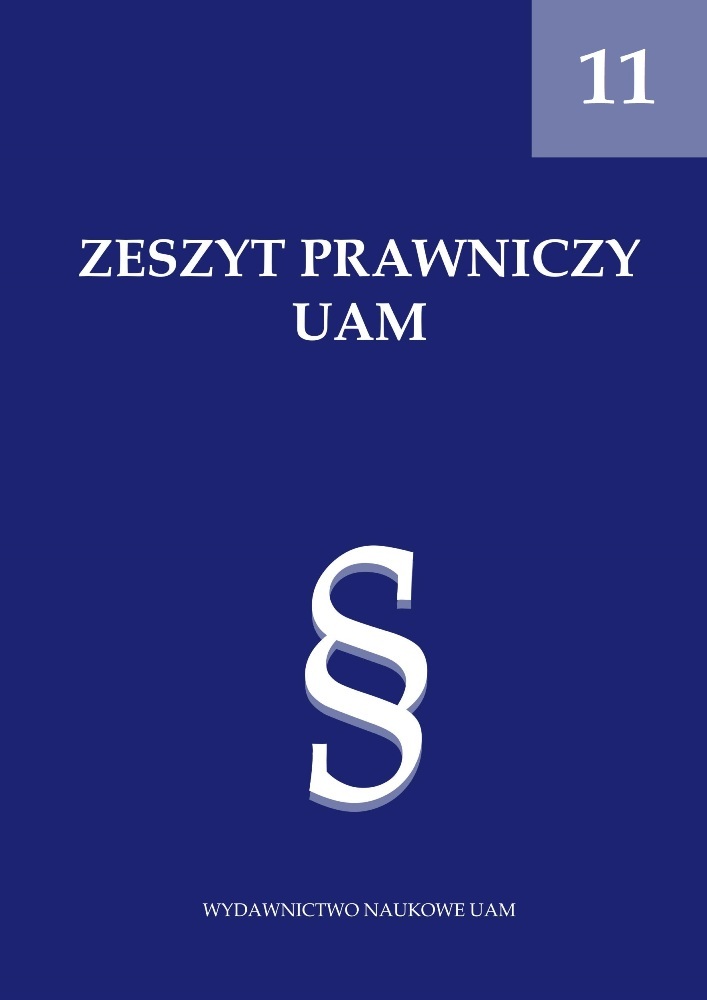Abstract
In the commented judgment, the Administrative Court in Warsaw evaluated the possibility of applying the exemption specified in Art. 21 (1) (68) of the Personal Income Tax Act to competitions involving electronic games. The article analyses the judgment in the context of recognising a certain form of electronic gaming activity as sport within the meaning of the Sports Act. It is only when a competition is considered to be a competition in the field of sport then it is possible to apply an income tax exemption. In addition, the doubts raised by the doctrine of sports law concerning the legitimacy of including a legal definition of sport in the act have been mentioned. Finally, the consequences of recognising certain types of e-sports competition for these activities have been determined, due to the fact that they have been equated with traditional sport, the professing and organisation of which is regulated under the Sports Act.
References
Badura, M., Basiński, H., Kałużny, G., Wojcieszak, M. (2011). Komentarz do art. 2, [w:] M. Badura, H. Basiński, G. Kałużny, M. Wojcieszak, Ustawa o sporcie. Komentarz. Warszawa: 29.
Bałaziński, M. (2020). Prawne aspekty założenia i funkcjonowania teamu e-sportowego, [w:] Ł. Klimczak, M. Leciak (red.), E-sport. Aspekty prawne. Warszawa: 43.
Buy, F., Marmayou, J.M., Poracchia, D., Rizzo, F. (2009). Droit du sport, L.G.D.J. Lextenso éditions: 4.
Czechowski J. (2014). Sport szansą społecznego rozwoju człowieka. Społeczeństwo i Ekonomia 1: 7–19. DOI: https://doi.org/10.15611/eis.2014.1.01
Gardiner, S., James, M., O’Leary, J., Welsh, R., Blackshaw, I., Boyes, S., Caiger, A. (2006). Sports law, Routledge. Cavendish.
Jasny, M. (2019). Sportowy wymiar „maniaczenia” przy komputerze, czyli kształtowanie sprawności fizycznej w ramach treningu w e-sporcie, [w:] D. Mańkowski, W. Woźniak (red.), Sport w ponowoczesności. Gdańsk: 66.
Kari, T., Karhulahti, V.M. (2016). Do E-athletes Move? A study on training and physical exercise in elite Esports. International Journal of Gaming and Computer-Mediated Simulations 8(4): 53–66. DOI: https://doi.org/10.4018/IJGCMS.2016100104
Krześniak, E.J. (2020). Komentarz do art. 2, [w:] E.J. Krześniak, Ustawa o sporcie. Komentarz. Warszawa: 43–45, 48, 54–55.
Michaluk, T., Pezdek, K. (2016). Rozproszone wydarzenia sportowe. Podmiotowość i cielesność w e-sportach, [w:] J. Kłosiewicz, J., Małolepszy, E., Drozdek-Małolepsza, T. (red.), Filozoficzne i społeczne aspekty sportu i turystyki. Częstochowa.
Myra, S. (2020). E-sport w świetle nowelizacji ustawy o sporcie. Prawo Mediów Elektronicznych 1: 20–21.
Nosal, P. (2015). Społeczne ujęcie sportu. (Trudne) definiowanie zjawiska i jego dyskurs. Przegląd Socjologii Jakościowej 11(2): 16–38. DOI: https://doi.org/10.18778/1733-8069.11.2.02
Skubida, D. (2016). Can Some Computer Games Be a Sport?: Issues with legitimization of esport as a sporting activity. International Journal of Gaming and Computer-Mediated Simulations. 8(4): 38–52. DOI: https://doi.org/10.4018/IJGCMS.2016100103
Wierczyński, G. (2016). Komentarz do § 147 rozporządzenia w sprawie „Zasad techniki prawodawczej”, [w:] G. Wierczyński, Redagowanie i ogłaszanie aktów normatywnych. Komentarz. Warszawa: Lex/el.
License
Copyright (c) 2021 Mariusz Szatkowski

This work is licensed under a Creative Commons Attribution 4.0 International License.

